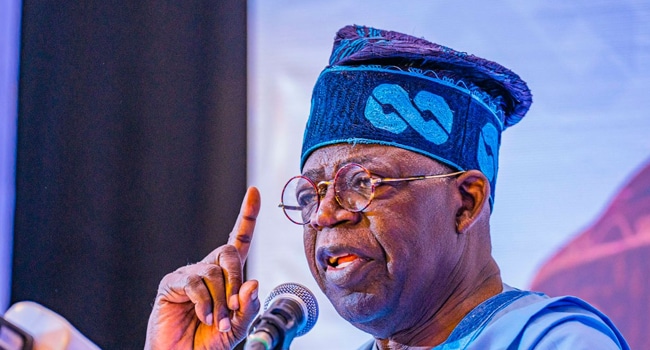On the first 100 days of renewed hope
Astute observers of presidential power in Nigeria have hypothesized that those who seek Nigeria’s highest political office…

President Bola Tinubu
Astute observers of presidential power in Nigeria have hypothesized that those who seek Nigeria’s highest political office seldom get it, while those who get it hardly have sought it because Nigeria’s leaders have tended to emerge through “accidental processes”, rather than for their own ambition or preparation for the job.
This hypothesis of “accidental leaders” is said to hold true for so many, if not all, of our past presidents or heads of state, from Prime Minister Tafawa Balewa in the 1960s to Goodluck Jonathan only eight years ago. But when President-elect Bola Ahmed Tinubu officially takes the oath of office today, few would say he came to it by accident. As president, Tinubu will be one of very few Nigerians who actively sought our country’s highest office, and got it. As he himself said on several occasions during the election campaigns, becoming Nigeria’s president has been his lifelong ambition. And in that sense, no one will say he has not prepared for office.
Still, there is one of two reasons why politicians prepare and run for office: for its own sake or for having a particular vision of the office—and the country—they seek to realize. Which is Tinubu’s?
This is why Daily Trust believes that millions of Nigerians will have been eagerly awaiting today’s inauguration of Tinubu from president-elect to president. Millions more will be watching Tinubu’s government over the next 100 days starting from today. What he does or doesn’t do over these first three months will tell what particular kind of a lifelong ambition Tinubu has had and prepared for all his life, not the euphoria or ceremonial displays of today. Is all his preparation for this day and this office all about realizing his ambition only on a personal level?
- Buhari renames airports after Awolowo, Danfodio, Idiagbon, others
- Afenifere, Obi, PANDEF, others criticise Buhari’s farewell speech
And in that case, Tinubu has his job cut out for him. Across almost all sectors of social, political and economic life in Nigeria today, the in-coming tray is full, and the out-tray nearly empty. On the economy, the new president must deal with the vexatious and deeply interconnected problems of fuel subsidy, multiple foreign exchange markets, mounting domestic and foreign debt, and a stubborn inflation—particularly food inflation—that has simply refused to slow down, despite the best, and worst, efforts of the country’s monetary policy authorities.
Each of these problems on the economic front will not only have direct and immediate consequences on all the others, but also on the country and its citizens at large. And that would still leave the broader questions of the economy like unemployment, poverty, infrastructure and inequality that have been aggravated by the pandemic and conflict, especially for women and youth.
And then, of course, there are the still smouldering fires of religious terror, secessionist terror, ethno-religious communal clashes, banditry and rank criminality that have seen our increasingly over-stretched military and security forces stationed in all but a handful of states in the country.
As must be clear to the new president by now, these challenges are deeply rooted in a myriad of social, political and economic dislocations for many millions over the past several decades, and as such, cannot be resolved merely with more boots on the ground.
Of these security challenges, three are worthy of special mention for the complex matrix of other issues they throw up which directly threaten our unity and mutual existence as one nation.
The so-called secessionist agitations in the South East have by now been exposed as no more than a dangerous and misguided machination of some criminal elements. But the new government will do well to recognize that the agitations have tapped into more legitimate and long-running yearnings and frustrations of a people that Tinubu’s election has only sharpened emotionally, if not worsened altogether. After eight years of commendable quiet, ethnic and religious chauvinists appear to be on the ascendance again on the Plateau such that the state—and the country—risks going back to those violent days that all well-meaning Nigerians wish had passed. And then, there is the rather invisible but equally very real social violence that women and young people suffer in Nigeria, just for being female or young.
It will matter that President Tinubu deals swiftly and decisively with all of these issues, and more, in order to meet the expectations of renewed hope that Nigerians voted him for. But it will matter just as much how he and his government deals with them, for, in the annals of public policy, no sooner had old problems been addressed than they create new ones.
We wish the new government all the very best of luck in the years ahead. More than that, we wish Nigerians the realization of renewed hope.
